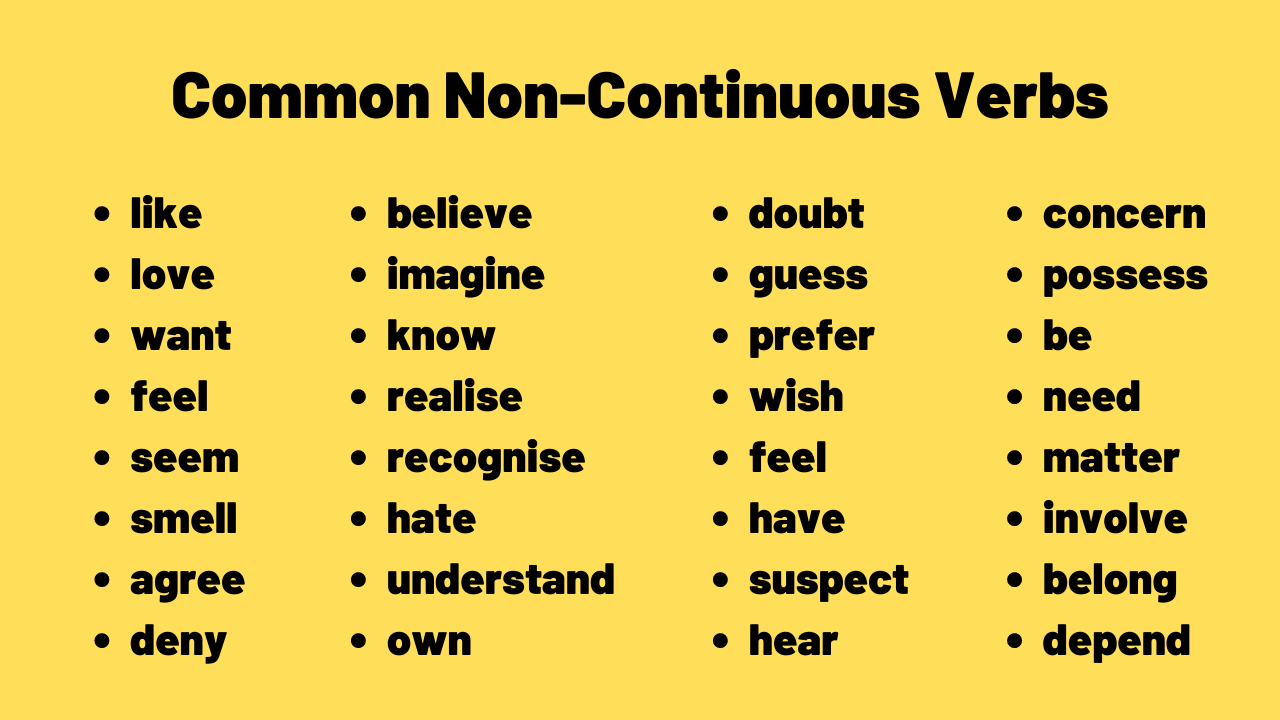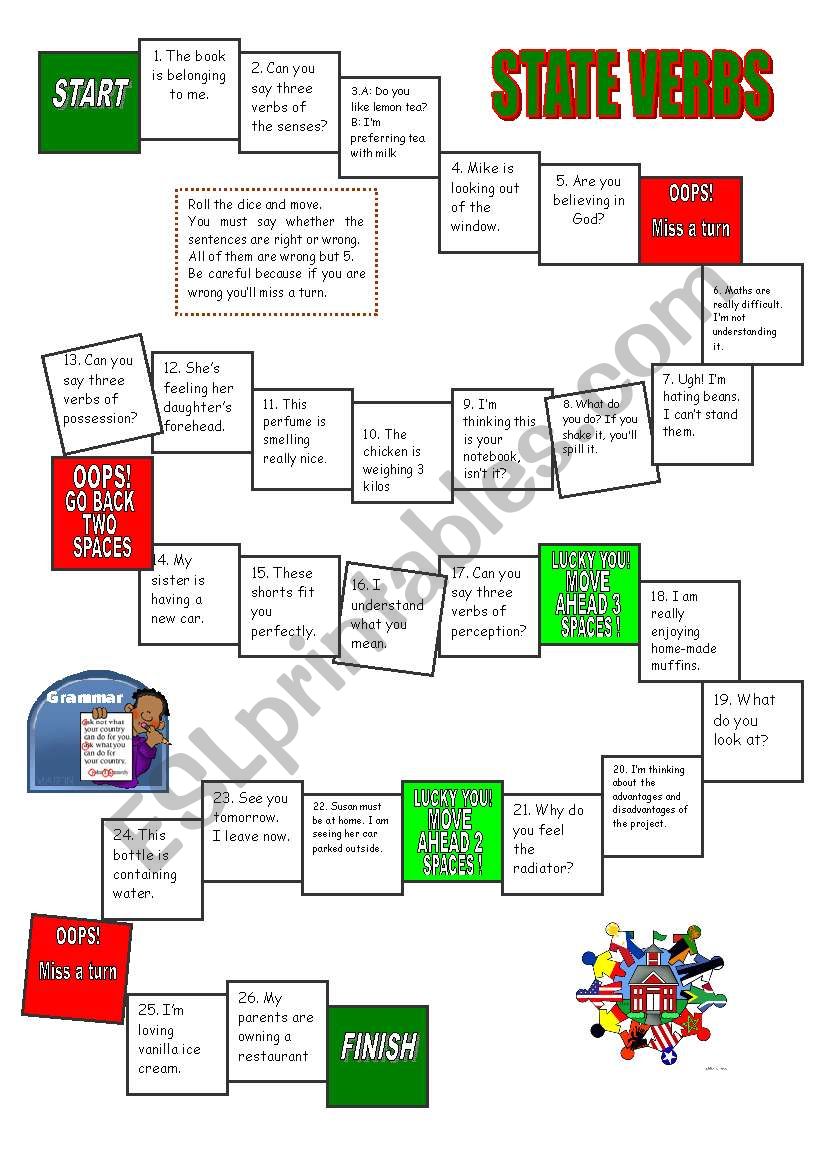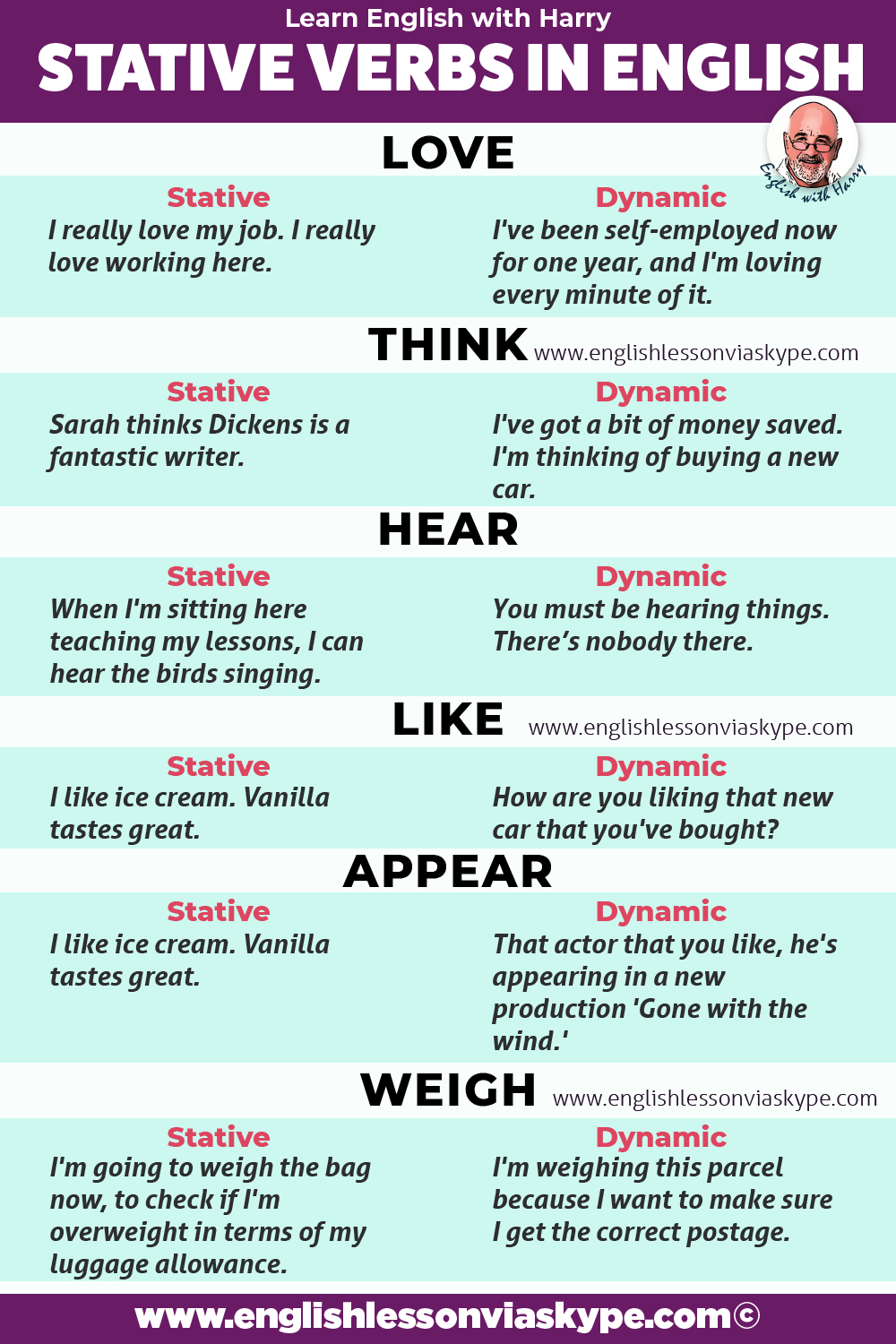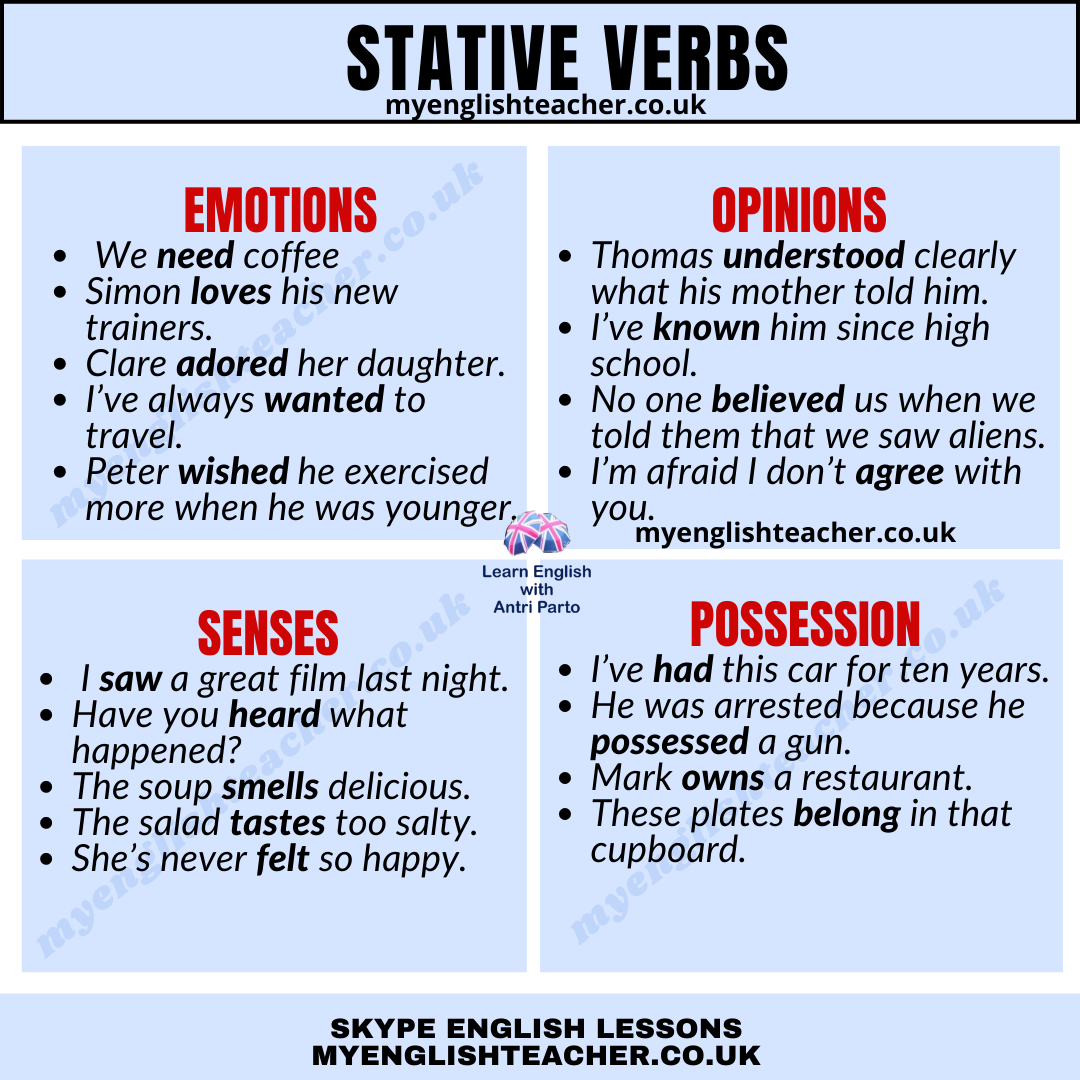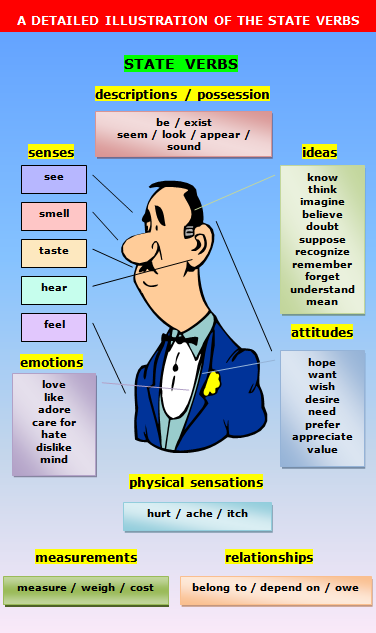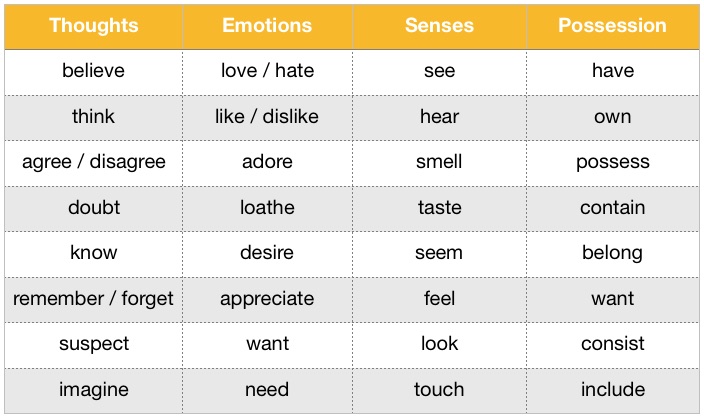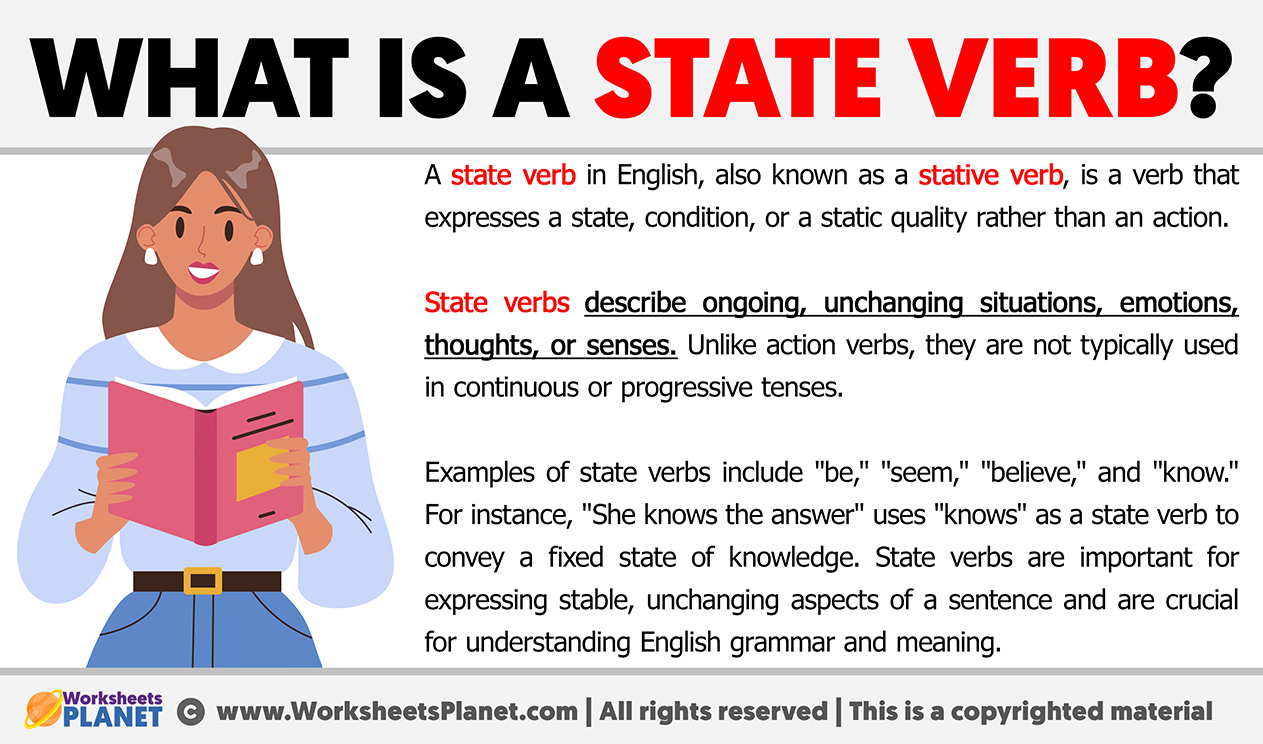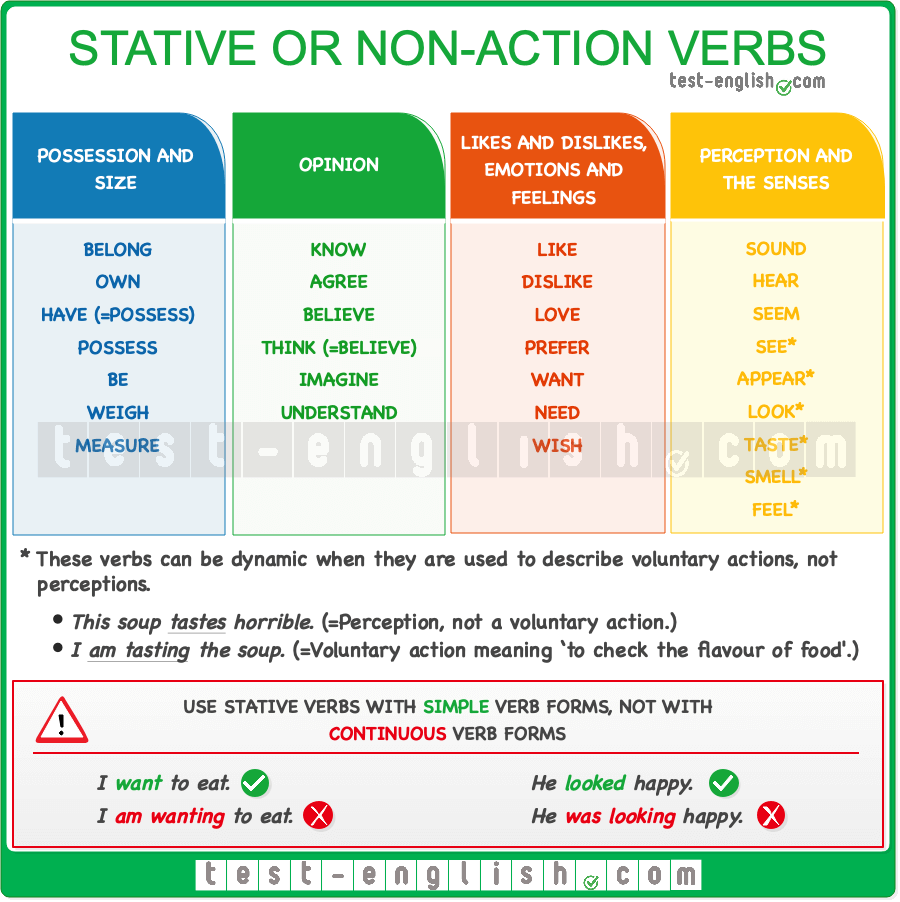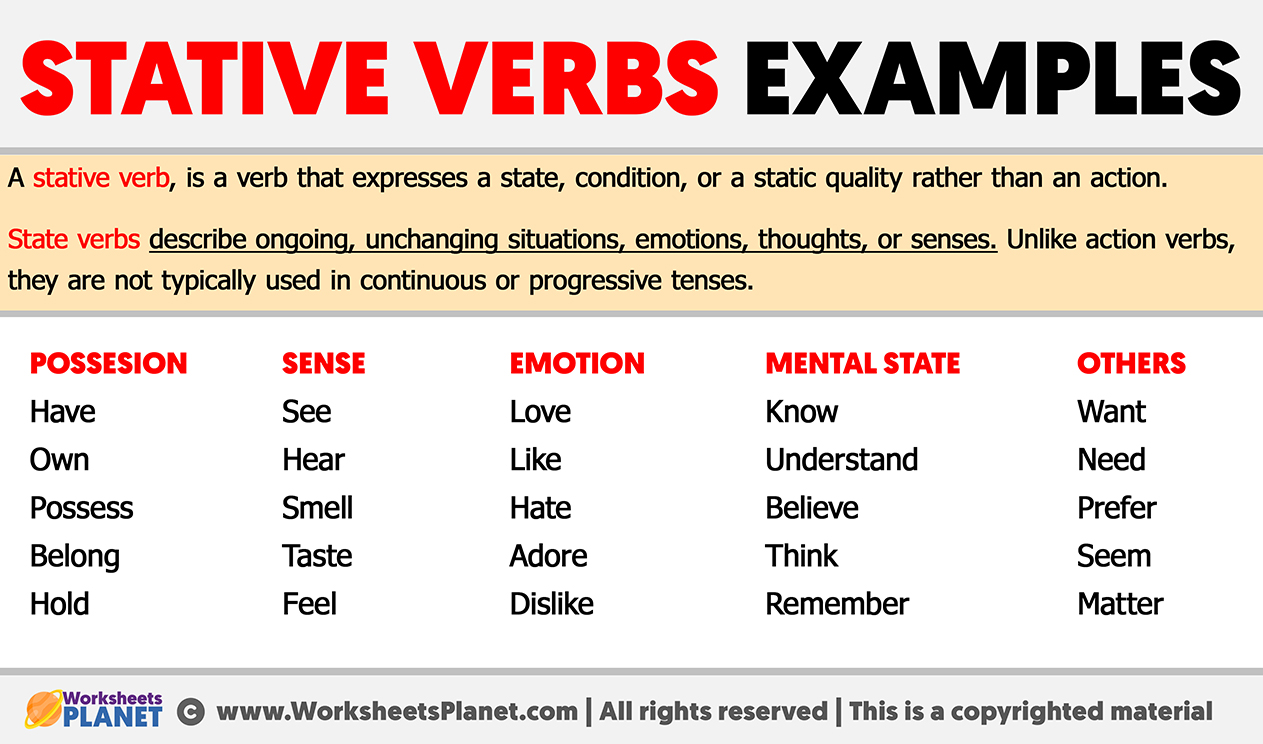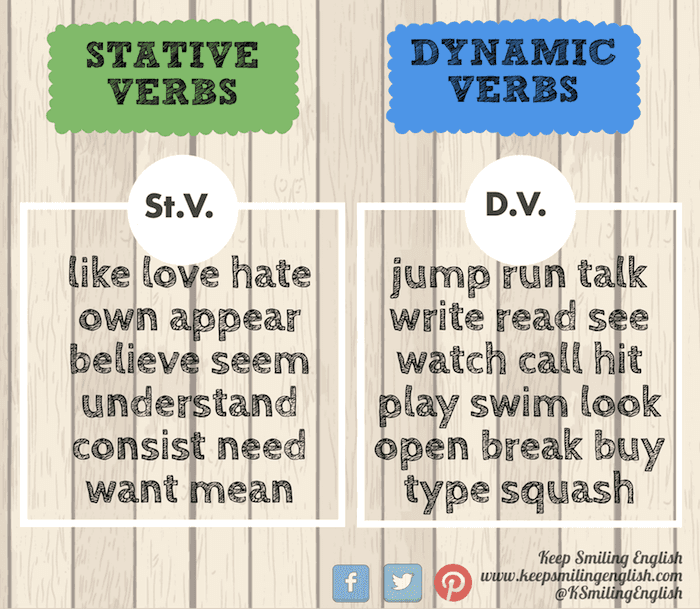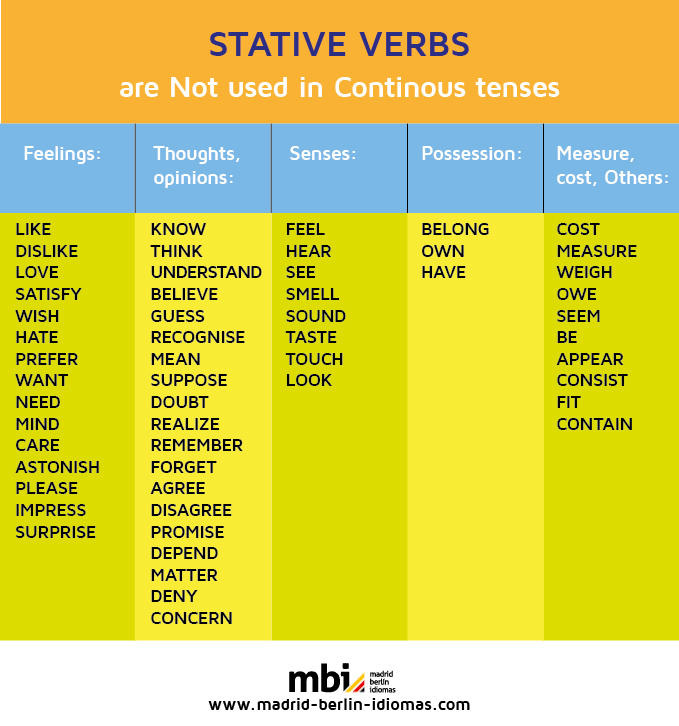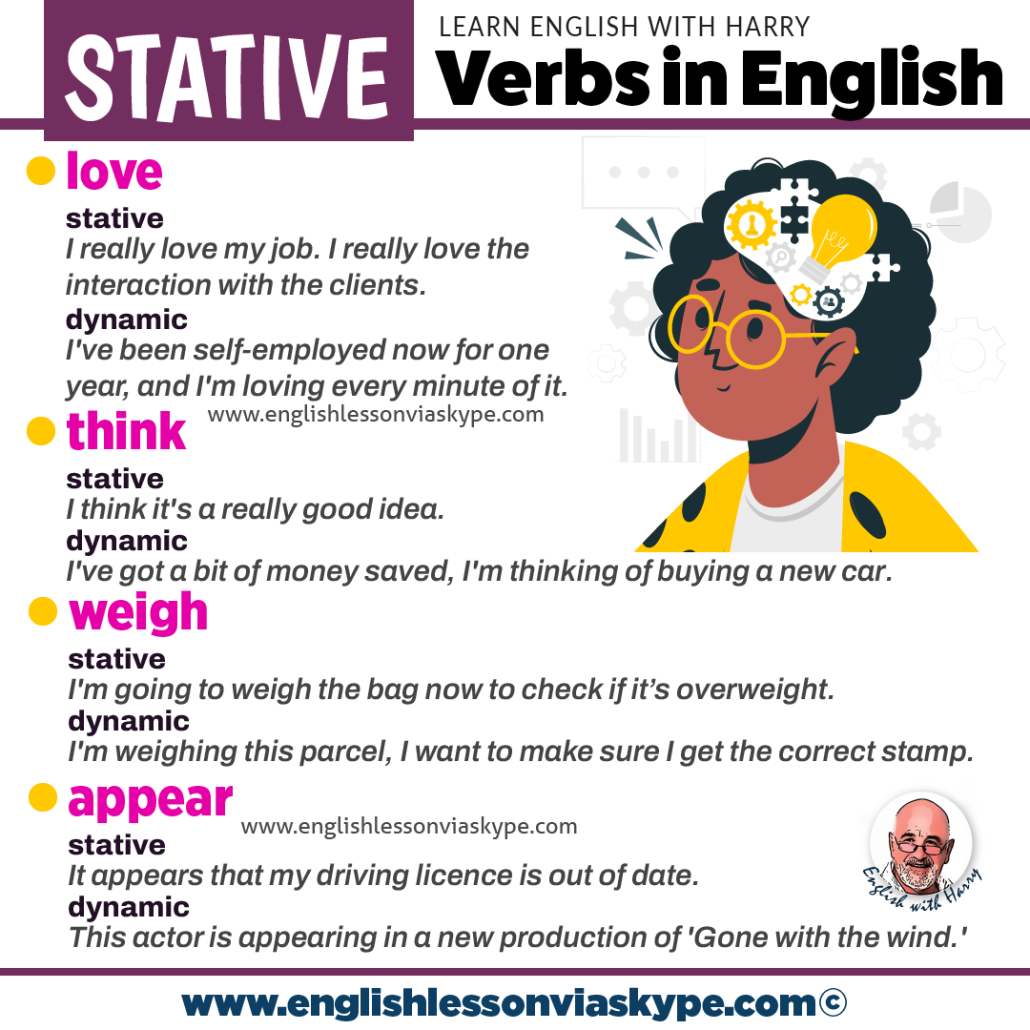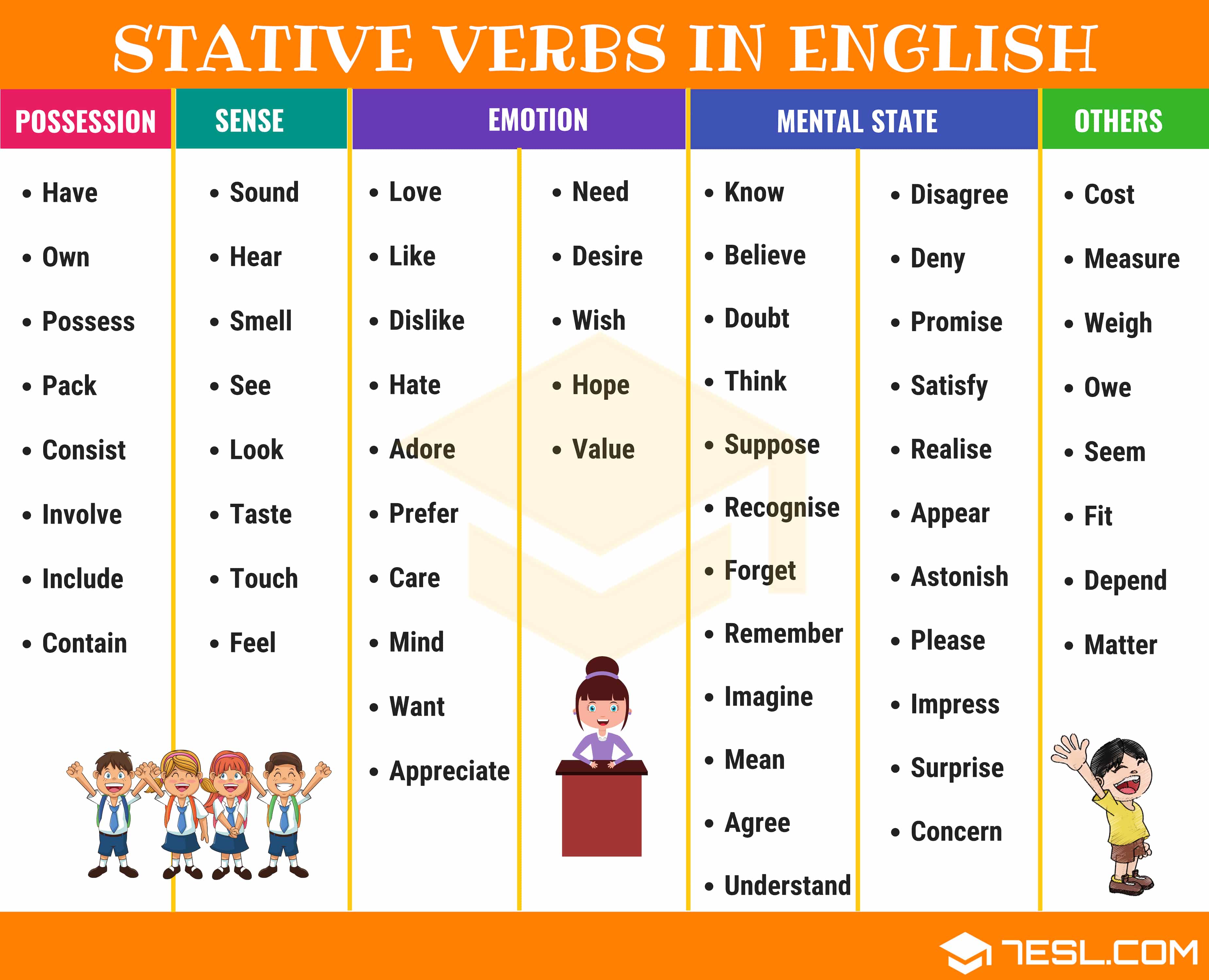
Stative or state verbs (or non-continuous verbs) Verbs that are not used in Continuous. But there are those.. | VK

American English at State - In English some verbs are not normally used in the -ing form. These are called "stative verbs." Some stative verbs include: agree, believe, doubt, want, mind, promise,

Learning English with Cambridge - Stative verbs describe a state rather than an action. 💭 They often relate to thoughts, feelings, opinions, senses or possession. Some of the examples for stative verbs

British School FVG - Cosa sono gli Stative verbs o State verbs? Sono verbi che esprimono uno stato piuttosto che un'azione. Spesso si riferiscono a pensieri, emozioni, relazioni, percezioni, stati dell'essere e
